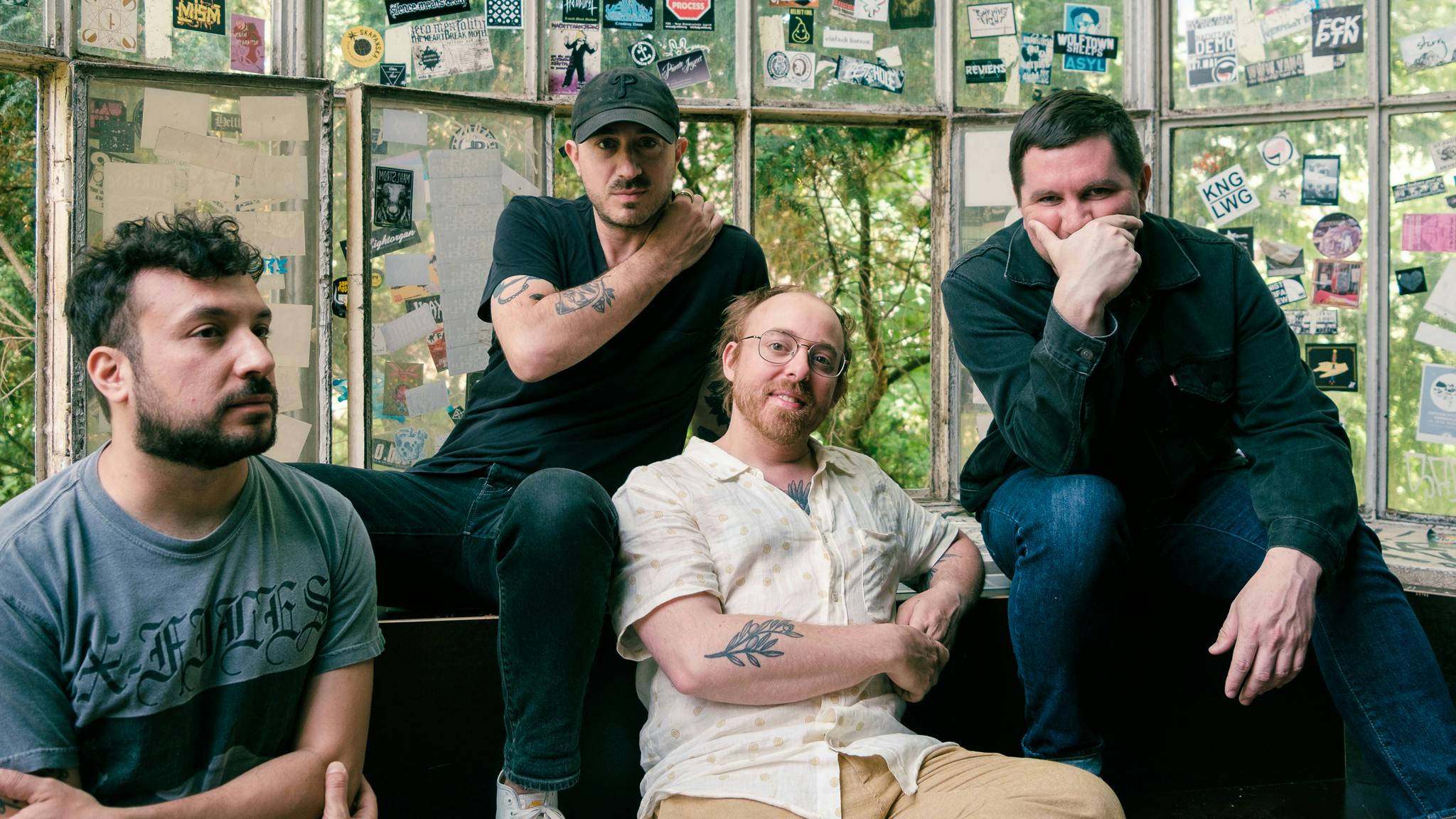For post-hardcore fans of a certain age, listening to The Menzingers can feel like an ongoing rite of passage. Their breakthrough third album, 2012’s On The Impossible Past, announced them to the world as smart punks with a sense of humour who weren’t afraid to do their growing up in public. Since then, they’ve built a committed global fanbase by writing songs that are best known for being anthemic and cathartic, selling out increasingly bigger venues as their seemingly indefatigable commitment to touring the world continues.
The fact they’ve done this with such dependable consistency makes it all the more remarkable. In a world where bands frequently fall apart for all the wrong reasons and fail to realise their potential, The Menzingers’ unchanged line-up of four friends from an unfancied part of the U.S. – Scranton, Pennsylvania – seems stronger than ever. So Kerrang! sat down with frontman Greg Barnett to try to get to the bottom of what exactly makes the band tick and what literally keeps their show on the road…
Your new album, Some Of It Was True, will be your seventh. How do you approach writing and recording to keep it interesting for yourselves?
“Naturally you have to look at the things that you’ve done as a band and where you want to go. We’re always looking toward the future and what we want to achieve. And then there’s a lot of not doing that, of just letting things come out naturally and writing about what you know and what you feel in the moment. When we start writing an album, we always get together and start throwing ideas around. ‘What did we do last time that we want to change? What did we go for that we didn’t achieve?’ We set boundaries and then we blow them up, basically (laughs).”
How did you blow things up this time?
“At first, it was like, ‘No slow songs!’, but we love writing slow songs (laughs). We’d be jamming and, like, ‘Speed it up, speed it up’, then Come On, Heartache comes around and we were, like, ‘Okay, this is good…’”
